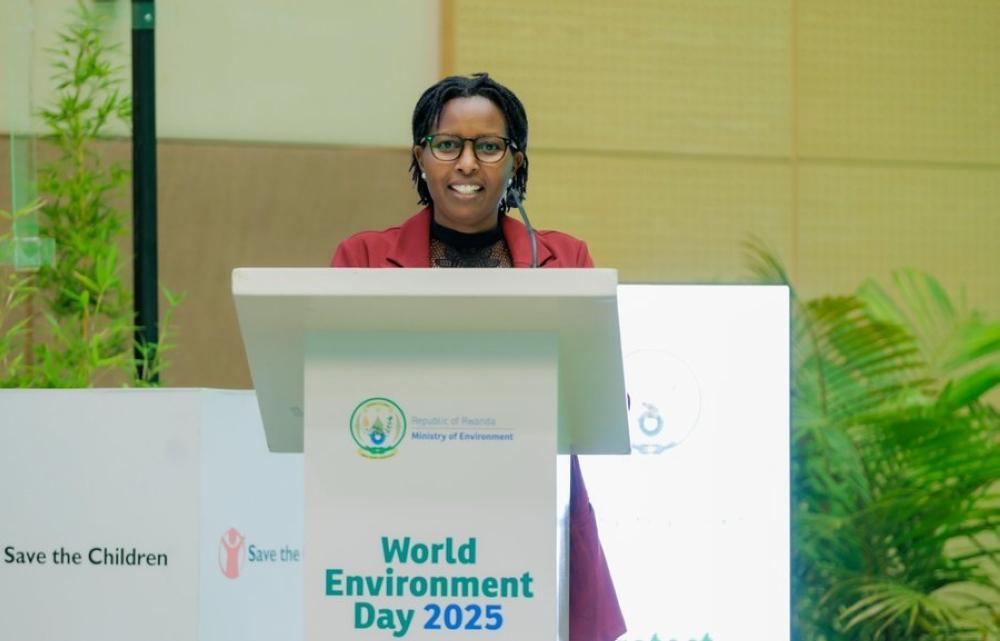Africa-Press – Rwanda. Nearly 1,500 green jobs have so far been created through an initiative that has established 24 centres for collecting plastic waste for recycling, according to Juliet Kabera, Director General of the Rwanda Environment Management Authority (REMA).
She was speaking on June 5 during World Environment Day, which was marked under the campaign theme: Beat Plastic Pollution.
“Plastic pollution is more than just a visible problem. It threatens our ecosystems, our health, and our climate. Across the world, plastic waste continues to accumulate in rivers, cities, lakes, and even in our food systems. Without action, projections show that plastic pollution will triple by 2040. But Rwanda chose a different path—early, and with determination,” she said.
In 2008, Rwanda became one of the first countries in the world to completely ban plastic bags.
In 2019, legislation was expanded to cover all single-use plastics, demonstrating Rwanda’s continued commitment to environmental protection.
“In 2021, REMA and the Private Sector Federation introduced a levy on plastic manufacturing to fund collection and recycling efforts. This initiative has led to the creation of 24 plastic collection points, the recovery of over 1,500 tonnes of single-use plastics, and the creation of more than 1,200 jobs in waste collection and management,” Kabera noted.
More than 14 companies are now producing alternative packaging to replace non-biodegradable plastics, while over 15 are involved in plastic recycling, according to REMA.
Pascal Gatete, Chief Executive Officer of Depot Kalisimbi Ltd, a licensed waste management company, told The New Times that plastics collected from various parts of the country during the pilot phase are being recycled to produce bricks and pavers for construction.
He noted that the first house and road in Rwanda have been constructed entirely from these plastic bricks and pavers.
“This initiative marks a key milestone in sustainable engineering, serving as proof of concept for the use of recycled materials in large-scale construction projects. With its success, we plan to scale up the project and extend the use of plastic pavers to other facilities and community roads—further advancing our mission of waste valorisation.”
Beathe Siborurema, CEO and founder of SIBO Engineering Company, recycles plastics to produce decorative items and furniture.
“We started four years ago as a start-up, recycling 100 kilogrammes of plastic per month. Currently, we can recycle 750 kilogrammes. We have five permanent staff and 12 casual workers. However, we still need financial support to purchase improved equipment,” she said.
She is also transforming plastic waste into floor tiles.
“We are producing 50 large floor tiles and 70 small ones per day,” Siborurema added.
Floor tiles made from recycled plastic are an emerging trend in sustainable construction and interior design.
Nitesh Patel, General Manager of Soft Packaging Ltd, said the company recycles plastics to produce black sheeting used at construction sites.
“We collect plastic waste from external sources, including airports and border areas. Once the material arrives, we sort it on-site. Some plastics are clean and can be sorted directly, while dirty plastics must be thoroughly washed before processing. After cleaning, the material is sent to the extrusion site for further processing. Our daily production capacity is around 4 to 6 tonnes,” he explained.
Investors in Rwanda are also recycling plastics to produce plant bags used for growing seedlings in the agriculture and forestry sectors.
For More News And Analysis About Rwanda Follow Africa-Press






